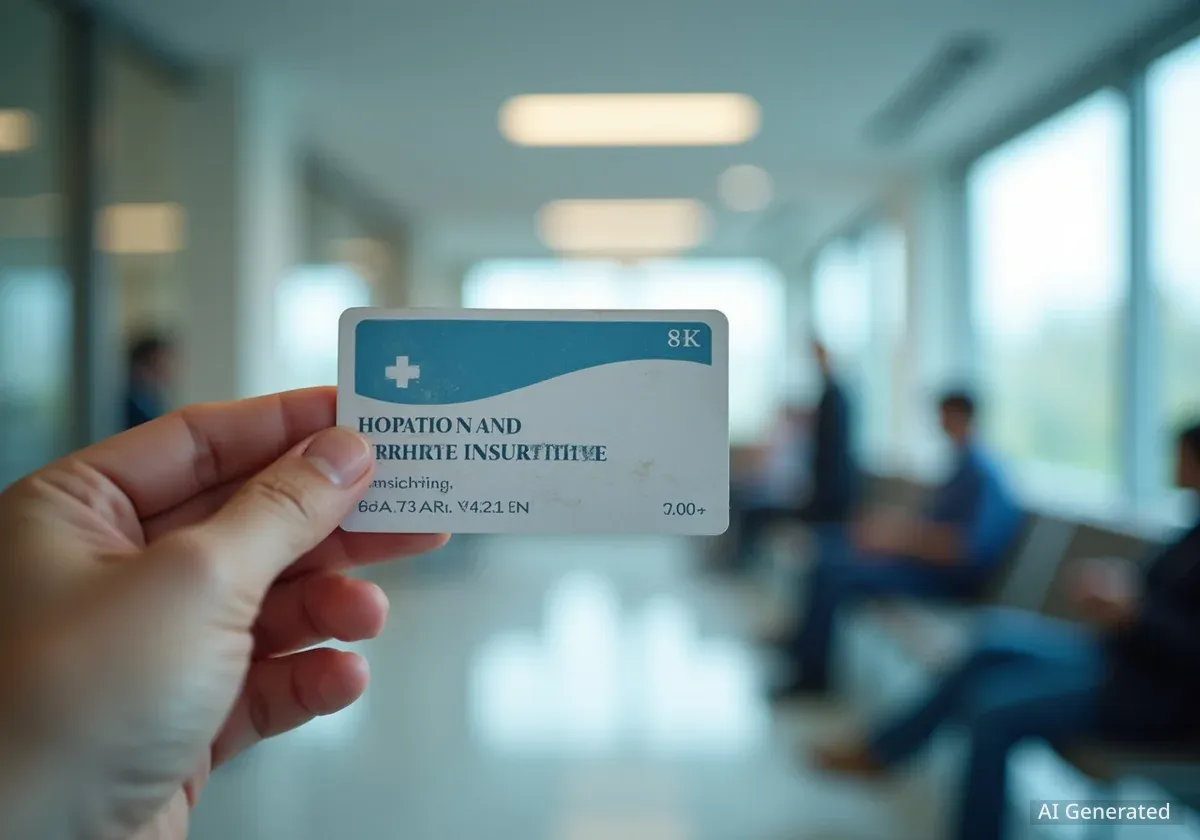State regulators in Rhode Island have approved significant increases for commercial health insurance premiums set to take effect next year, impacting nearly 175,000 residents. The decision allows for rate hikes of up to 21% for some plans, driven by rising healthcare costs, a new state fee, and the potential expiration of federal subsidies.
The Office of the Health Insurance Commissioner (OHIC) announced the approved rates on Monday, signaling a period of rising costs for individuals and businesses who purchase their own coverage or are part of small and large group plans.
Key Takeaways
- State regulators approved rate increases of 17.6% for the small group market, 19.3% for the large group market, and 21% for the individual market.
- The changes will affect nearly 175,000 people who are not covered by self-funded employer plans, Medicare, or Medicaid.
- A new state insurance fee of $50 per person will be added to premiums starting in January.
- The expiration of federal Affordable Care Act tax credits at year's end could cause an additional 85% premium jump for some households.
- Governor Dan McKee is urging federal action to extend the tax credits and has directed state agencies to find ways to contain costs.
Details of the Approved Rate Increases
The approved rate changes will apply to Rhode Islanders who buy insurance through the state marketplace or are enrolled in fully insured employer plans. The increases vary depending on the type of plan.
For the individual market, where people purchase their own coverage, rates will climb by 21%. The small group market, which covers many small businesses, will see an average increase of 17.6%. The large group market faces a 19.3% hike.
It is important to note that these changes do not apply to everyone. According to state officials, approximately 65% of Rhode Islanders are covered by employer-sponsored plans that are self-funded. These employers pay healthcare costs directly and are not subject to the OHIC's rate approval process. Residents covered by government programs like Medicare and Medicaid are also unaffected by this decision.
Who is Affected?
The rate increases primarily impact individuals and families who purchase insurance through HealthSource RI, the state's health insurance marketplace, as well as employees of businesses with fully insured group plans. This group represents a significant portion of the state's population that relies on commercial insurance.
Factors Driving the Premium Hikes
Officials have pointed to several key factors contributing to the substantial premium increases. These include rising healthcare utilization and costs, new state-level fees, and uncertainty surrounding federal subsidies that help make coverage more affordable.
New State Insurance Fee
A significant contributor to the higher rates is a new annual state insurance fee scheduled to take effect in January. The fee amounts to $50 per person, or up to $200 for a family of four.
The Rhode Island General Assembly included this fee in the state budget after insurers had already submitted their initial rate proposals. As a result, OHIC stated it was required to add the fee on top of the requested rates, directly increasing the financial burden on policyholders.
Expiring Federal Tax Credits
A major concern for both state officials and consumers is the looming expiration of the federal Enhanced Premium Tax Credits (EPTCs). These credits, part of the Affordable Care Act (ACA), are set to end on December 31 unless Congress takes action to extend them.
"To guard against double-digit rate increases becoming the new normal, large health care provider organizations and health insurers need to bear more accountability for managing costs and providing access to affordable health care," said Health Insurance Commissioner Cory King.
Without these subsidies, customers of HealthSource RI could see their premiums jump by an average of 85%. This would translate to an additional cost of about $1,250 per household annually, even before the newly approved rate hikes are applied. OHIC warned that low-income and older Rhode Islanders would be most severely impacted.
A Potential Double Hit for Consumers
If Congress does not extend the EPTCs, a household purchasing insurance on the individual market could face a combined premium shock from both the loss of subsidies and the 21% rate increase, making affordable coverage unattainable for many.
State and Federal Push for Action
In response to the rising costs, state leaders are pushing for federal intervention while also exploring state-level solutions. The primary focus is on extending the federal tax credits that have helped stabilize the insurance market.
Governors Urge Congress to Act
Rhode Island Governor Dan McKee has joined Massachusetts Governor Maura Healey and 15 other governors in a bipartisan effort to persuade Congress to extend the ACA's tax credits.
In a joint letter, the governors emphasized the urgency of the situation.
"If Congress acts quickly, states can lock in lower premiums and spare families a wave of sticker shock this fall. If not, the damage will be felt for years," the letter stated. "It’s about protecting working people who are doing everything right but still struggling to get by."
Governor McKee noted that if the credits expire, approximately 40,000 Rhode Islanders who depend on marketplace coverage would face significant financial strain. He has called for immediate federal action to prevent this outcome.
State-Level Cost Containment Efforts
Recognizing the immediate pressure on families, Governor McKee has also directed OHIC to begin an "aggressive review" of healthcare costs and draft a legislative proposal to contain them. He described the rising premiums as a "real strain for families across Rhode Island."
In a letter to Commissioner King, the governor outlined several priorities:
- Capping certain cost drivers, such as administrative charges.
- Expanding OHIC's authority to regulate and control premiums.
- Implementing a temporary pause on new, unfunded health insurance mandates to assess their financial impact.
HealthSource RI Director Lindsay Lang expressed concern that without intervention, thousands could lose their health coverage entirely. "We worry about our neighbors facing insurmountable medical costs or suffering serious health impacts from avoiding or delaying care as a result," Lang said.
Regulatory Oversight and Savings
While the approved rates are high, OHIC noted that they are lower than what insurers originally requested. The agency conducted a thorough review of the proposals submitted in May, examining assumptions about medical and pharmacy costs, administrative expenses, and profit margins.
Through this process, OHIC claims to have saved Rhode Island customers more than $59.3 million compared to the insurers' initial filings. The agency rejected all requests for administrative cost increases, limiting them to the rate of inflation. It also denied requests for extra charges related to potential drug tariffs, citing a lack of concrete evidence, and trimmed insurers' reserve requests to help lower the final approved rates.





